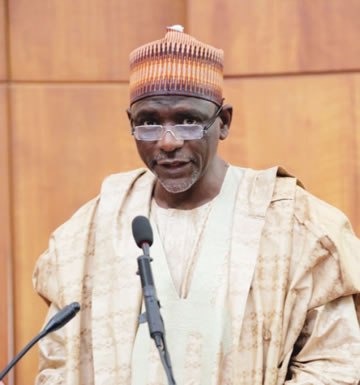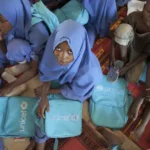
Despite combined efforts by government at all levels, development partners and non-governmental organisations to increase enrolment and reduce the number of out-of-school children in Nigeria, poverty and insecurity remain significant obstacles that undermine the efforts.
According to the United Nations Children’s Fund (UNICEF), Nigeria has the highest number of out-of-school children in the world, estimated at over 10.5 million.
Many of these children come from poor households that cannot afford to pay school fees, uniforms, and other school-related expenses.
Additionally, insecurity in certain parts of the country, particularly in the North, has also led to the closure of schools and the displacement of families, making it harder for children to access education. The Boko Haram terrorists in the Northeast have consistently attacked schools and universities, making it difficult for children in that region to access education.
This, in turn, puts them at a disadvantage in terms of future job opportunities and economic mobility. Poverty and insecurity also lead to other factors that contribute to the problem of out-of-school children in Nigeria.
Children in impoverished households may have to work to support their families, leaving little time and energy for school. Security concerns can also prevent families from sending their children to school, particularly if they have to travel long distances to get there.
Addressing poverty and insecurity in Nigeria is crucial for increasing access to education and reducing the number of out-of-school children.
This involves not only providing free education and scholarships but also ensuring that families have access to basic needs such as food and healthcare.
Even for those children who are able to attend school, poverty and insecurity negatively impact the quality of education they receive.
Schools in low-income areas are often underfunded and understaffed, resulting in inadequate facilities, outdated curriculum, and insufficient teaching materials.
Insecurity can also lead to teacher shortages and a lack of qualified teachers in areas affected by conflict and violence.
This is happening despite the Federal Government’s intervention to reduce the scourge of out-of-school children through the Universal Basic Education Commission (UBEC).
Against this background, experts believe that there is a need for targeted interventions that prioritise the most vulnerable populations, address systemic issues of poverty and insecurity, and improve the quality of education in low-income areas.
An educationist, Prof. Babatunde Ayeni, noted that poverty and insecurity disproportionately affect certain demographics in Nigeria, such as girls, children with disabilities, and those from rural areas.
“These groups often face additional barriers to accessing education, including cultural beliefs that prioritise male education, lack of accessible infrastructure for those with disabilities, and distance from schools in remote areas. All these factors contribute to the challenge of addressing the problem of out-of-school children in Nigeria,” he declared.












